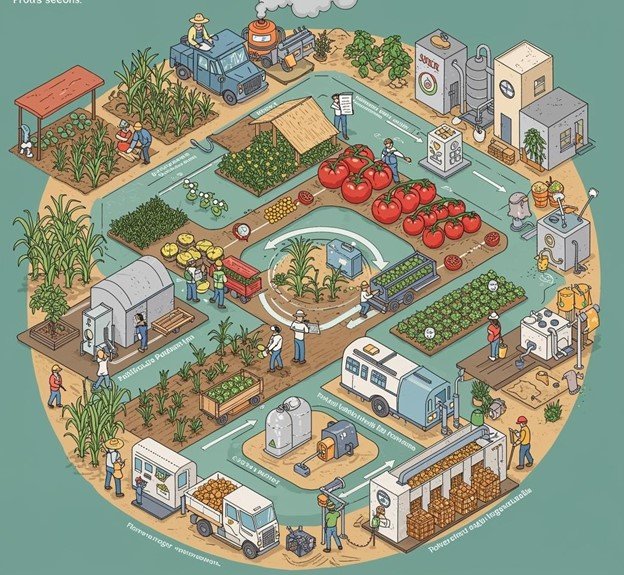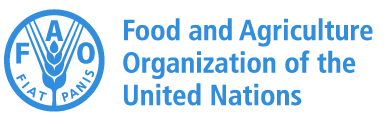- Name:Transformation to Low Carbon Agrifood Value Chains in Egypt
- Date:(2023-2024)
- Tag:Agri-Food Value Chain

Transformation to Low Carbon Agrifood Value Chains in Egypt (2023-2024)
OBJECTIVES

Methods: The study employed a mixed-methods approach, including literature review, data analysis from 173 FFSs, expert consultations, stakeholder workshops, SWOT analysis, and economic feasibility studies. The research focused on four key crops: pepper, tomato, sugarcane, and medicinal and aromatic plants (MAPs), examining traditional practices and CSA interventions across their respective value chains.
Main Results:
This study explores the transformation of Egypt’s agrifood value chains to low-carbon, climate-resilient systems, emphasizing the crucial role of climate-smart agriculture (CSA). A key takeaway is the demonstrable economic feasibility of CSA interventions. Across various crops, including corn, wheat, sugarcane, peppers, tomatoes, and medicinal and aromatic plants, the implementation of CSA practices resulted in increased profitability for farmers.
For example, the adoption of drip irrigation consistently led to higher yields and reduced water consumption, offering a strong return on investment despite the initial capital outlay. This technology proved particularly effective in water-scarce regions of Upper Egypt, showcasing its potential for both economic and environmental benefits. Furthermore, the study highlighted the substantial economic gains achievable through improved post-harvest management, especially for perishable crops like tomatoes. Minimizing losses through better handling, processing (such as sun-drying), and storage significantly increases marketable yields and profitability.
The report identifies specific investment opportunities across different value chains. In the tomato value chain, addressing the high rate of post-harvest losses (47%) presents a significant opportunity for investment in improved handling, processing, and storage facilities. The sugarcane value chain analysis reveals the potential for a zero-waste approach, maximizing resource utilization and minimizing environmental impact through investments in innovative processing technologies.
The study recommends targeted financial assistance programs and low-interest loans to empower smallholder farmers to invest in CSA technologies. By showcasing the economic viability of CSA and identifying specific investment opportunities, the report aims to encourage private sector engagement and promote sustainable agricultural development in Egypt. This approach not only strengthens the livelihoods of smallholder farmers but also contributes to national food security, climate change mitigation, and the overall resilience of Egypt’s agrifood system.
Partners: The study was a collaborative effort involving the Food and Agriculture Organization of the United Nations (FAO), the International Fund for Agricultural Development (IFAD), the Ministry of Agriculture and Land Reclamation (MoALR), the Center for Environment and Development for the Arab Region and Europe (CEDARE), Dcode Economic and Financial Consulting Company (Dcode EFC), and the Cairo Center for Development Benchmarking (CDB), along with various universities, research institutes, governmental authorities, civil society organizations, and private sector actors.
Link to Study:
https://www.fao.org/documents/card/fr?details=CC9313EN.





